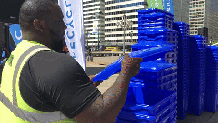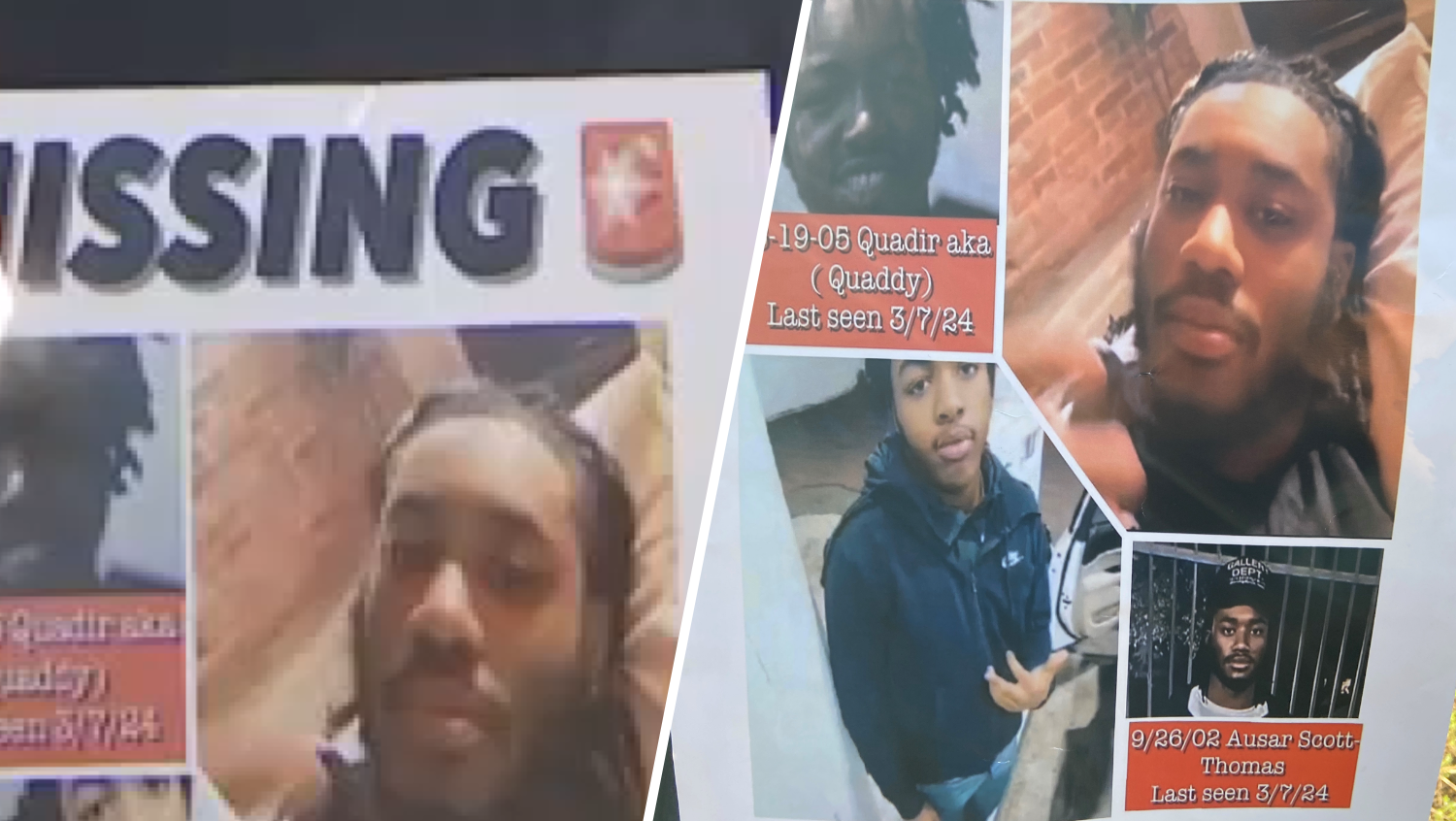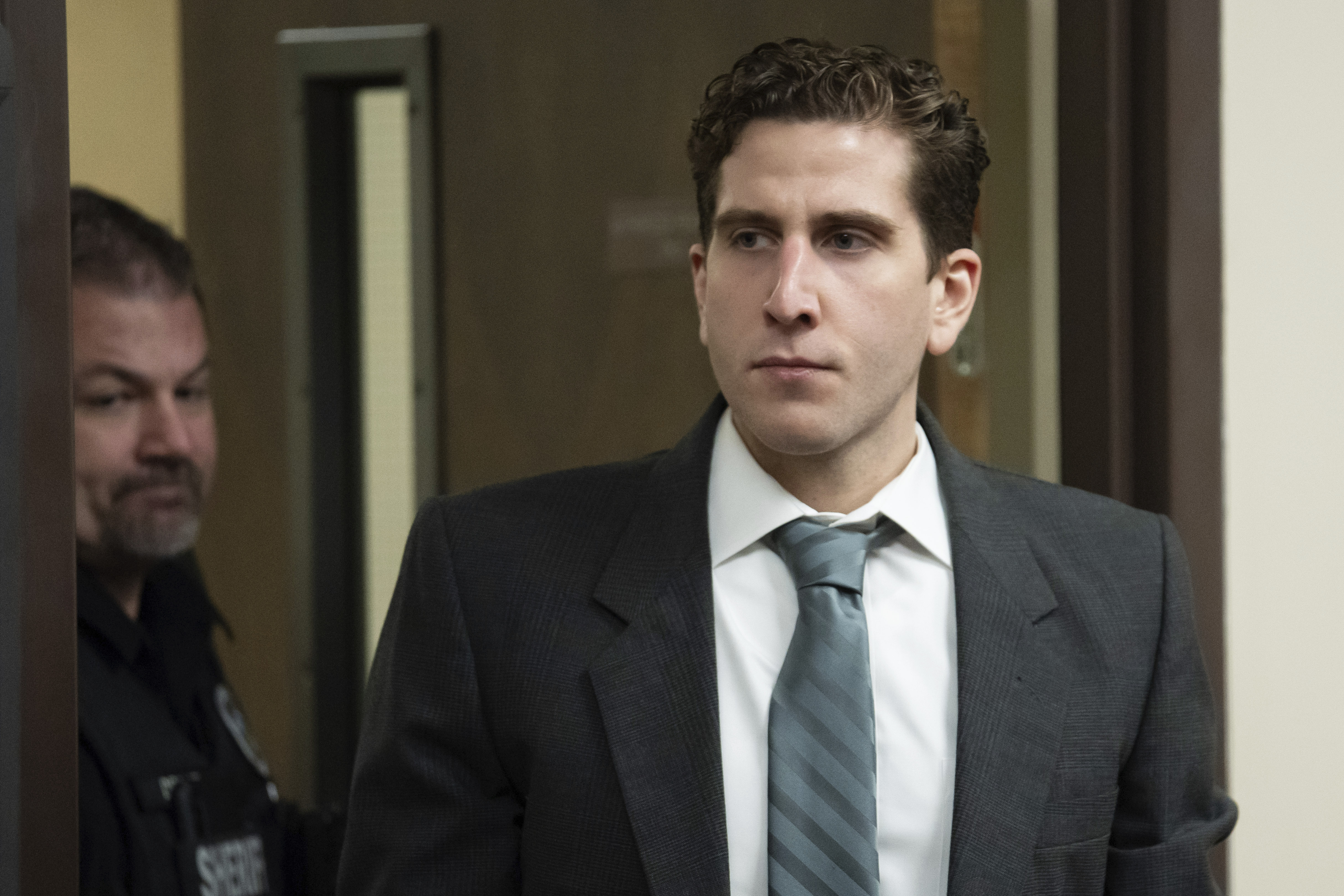When former New Orleans Mayor Ray Nagin ripped Philadelphia back in 2007 for being a city dirtier than New Orleans "by a long shot," city residents and officials told him, in no uncertain terms, to put a lid on it.
Too bad the city took another decade before it realized what it should have actually put a lid on: its Streets Department-issued recycling bins.
The blue, 22-gallon bins now come with lids, one of three major developments in Philadelphia's recently much-maligned recycling program.
Here are the three ways recycling changed for the better Wednesday:
Take a Minute Before You Bin It — That's the Streets Department's new slogan for its public service campaign to educate residents on smarter recycling.
Commissioner Carlton Williams and other city sanitation leaders gave some examples: don't put Styrofoam in your recycling bin; do clean off plastic containers of food waste before recycling; don't recycle plastic forks, knives, spoons and plates, which are also known as "junk plastics."
"Understanding these little tips goes a long way," Williams said. "Reducing the contamination rate saves taxpayer money."
Local
Breaking news and the stories that matter to your neighborhood.
Contaminated recyclables slow down the process and increase the cost for Waste Management, the garage giant which is taking over the city's recycling operation. That includes wet paper in the recycling bin, food-crusted pizza boxes and plastic straws that aren't recyclable through in with your paper cup.
"You wouldn't believe how many things have come down the conveyor belt," Carmen Perez of Waste Management said. "If you have to shut down the processing line every 20 minutes, it's a problem."
"The recycling quality has to improve," she added.

Recycling Bins Now Come with Lids! — Who woulda thought? The small accessory is a no brainer in a city where residents and visitors are very familiar with trash blowing aimlessly down the street.
But the lids go beyond stopping recyclables and trash from getting caught in the wind: they also help to improve the contamination rate. Paper and cardboard will no longer get wet when it rains. (Wet paper material can become too soggy to be recycled.)
Here's a tip too: While the city does give out blue recycling bins to residents, any container less than 32 gallons in size can be filled with recyclable material put on the curb on recycling day.
No More Incinerating Recyclables — For several months, more than half the city's recycling was not taken to a processing facility. It was burned in a massive Chester incinerator.
That forehead slapper was due to a steep increase in the cost of recycling for two reasons: higher contamination rates (that, again) and China's refusal to take American recyclables.
But on Tuesday, the city announced a four-year contract with Waste Management to recycle 100% of the clean recyclables it collects. The new deal will cost the city about $90-100 per ton of recycled waste. That cost depends on the market for recycled goods and how clean the recycled material is.



